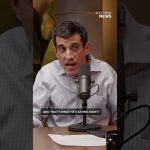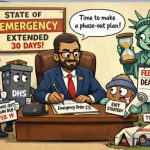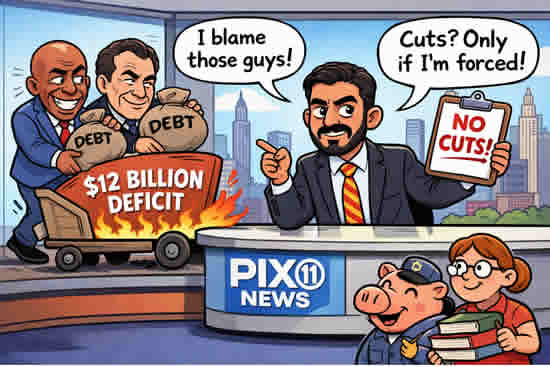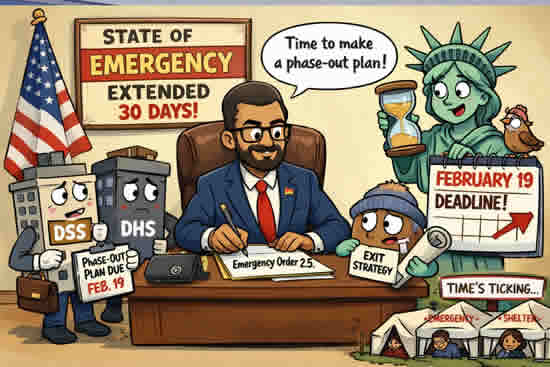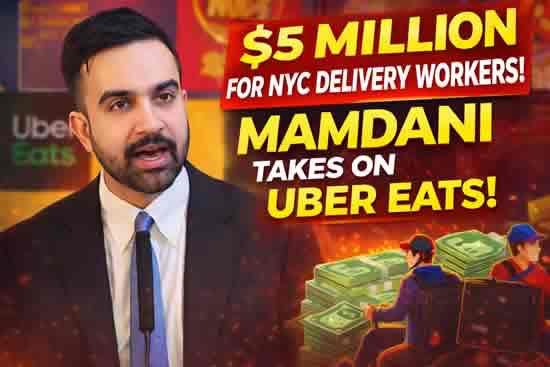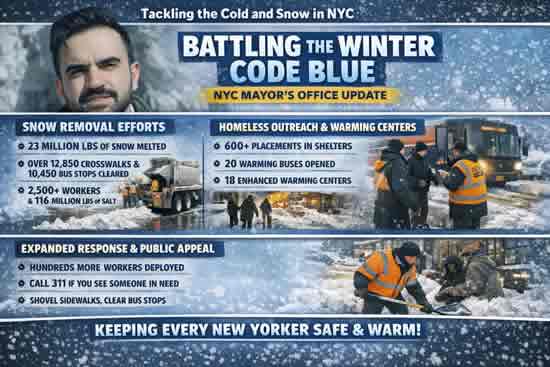Mayor Eric Adams: How’s it going? Good to see you all. Well, sort of. So I just want to go over a couple of things before we open the floor up to some off-topic questions as well.
[Crosstalk.]
These fires, brush fires, never thought we’d be in the city talking about brush fires. But it just really goes to show you how this issue around droughts and the lack of rain and the environmental crisis that we’re facing now is real.
But FDNY, they have been responding to these fires. And we’re really calling on New Yorkers to do their part. If you saw the photos from Prospect Park the other day, it was extremely frightening to see how these fires can spread rather rapidly. But we’re calling on New Yorkers really not to do any barbecuing outside and do as much as possible to extinguish any fires. And we don’t really want you doing anything that’s going to cause these brush fires from taking place further.
Real low rainfall, it just increased the risk of brush fires. And we’ve seen brush fires, which are smelling a lot, is what’s taking place in New Jersey. There are several brush fires. And that smoke is lingering in our area. So those who are dealing with respiratory issues, we’re saying, please stay indoors. Use a filter. Use air conditioning. Do everything that’s possible. Just take some common sense safety measures. And we have to really put measures in place to not overuse water. Brush your teeth. Don’t let the faucet run. Don’t take long showers. Even when you’re watering your yard, don’t use a great deal of water. We need rain. And we can’t get any clearer than that. Not only downstate, but up where our reservoirs are located.
Keeping New Yorkers safe. Again, crime is down for 10 straight months. Hats off to Interim Police Commissioner Tom Donlon and our entire team over there. Chief Maddrey, Chief Deputy Commissioner of Operations Kaz Daughtry, Chief John Chell, and the men and women of the New York City Police Department, First Deputy Commissioner Tania Kinsella. And just keep driving down crime, moving in the right direction. And every time I hold town hall meetings, I’m on the subway, in the streets, people talk about public safety. Those are the issues that they talk about over and over again. They want to be safe. It’s a prerequisite to our prosperity.
And when you look at the 19,000 guns this administration, that we have removed off our streets, nothing personifies that more than yesterday, up in uptown Manhattan, where a seven-year-old young girl was shot, getting caught in the crossfires of what potentially was a gang-involved shootings. That is why we’re targeting these guns. And I started with that at the beginning of this administration. And keeping our subway system safe also. We had a 14 years lowering [crime in] our subway system. If you were to remove the pandemic years, we’ll continue to drive down crime that we’re seeing and moving in the right direction.
Lastly, the Harbor School expansion on Governor’s Islands. We’re really excited about that. Last week, our administration broke ground on the expansion of the New York’s Harbor School on Governor’s Island. Really excited about it. Hats off to the School Construction Authority, the Trust for Governor’s Island, public schools Chancellor Aviles-Ramos, and her team, and Deputy Mayor Meera Joshi, and her team, for the work that they put in place to get this done.
This is an expansion that will allow the school to better prepare young New Yorkers for good paying green jobs by doubling the school campus from two to four buildings. When we think about the environment, we also want our young people to be prepared for these jobs. And Harbor School graduates will work on the wind turbines that will power 500,000 homes in our city, [inventing] green technologies that we could imagine what the future will hold. And we’re looking forward to that. So with that, why don’t we open the floor to some on top– off topic questions.
Question: Hi, Mayor, how are you doing?
Mayor Adams: Good, how are you?
Question: I’m well, I’m well. I want two questions related to the incoming Trump administration and immigration. Are you concerned about any of the appointees that the President-elect have made, specifically Tom Homan and Stephen Miller, who’ve openly expressed that they want to do more immigration enforcement in New York City? And as you communicate with President-elect Trump, and have communicated with him, will you express concern about mass deportations in the city?
Mayor Adams: My concern is one concern. We keep tinkering around the edges. We keep having this philosophical conversation about it. The voters communicated loudly and clearly. We have a broken immigration system. It needs to be fixed. That’s the only conversation I want. It’s broken, it needs to be fixed. And New York City was devastated by that broken system. 220,000 migrants and asylum seekers have made their way here. No financial assistance from the administration. I think it was about $200-something million, with billions of dollars we had to pay for.
I don’t want to see that happen again. I don’t want what’s taking place in Chicago, in Denver, Los Angeles, Houston. I don’t want to see it take place again. Let’s fix our immigration system. Anything other than that, I’m not interested in that conversation. We have a broken system. I talked about this in 2022, just as I talked about violence in 2021, and voters made this the top of their list. The top of their list. When I was talking about it, everyone was being dismissive of me, and voters said, this is a problem. And if we don’t have a conversation about fixing the system, everything else is just being philosophical and theoretical, and I’m just not going to engage in that. Let’s fix the system.
Question: To be clear, sir, are you saying, leave people here alone, focus on the system, or are you not even engaging on what might happen in the city and just focus on the system fix? I understand you’re saying…
Mayor Adams: Part of it is, we need to either pick up the cost, cities should not be dealing with a national problem. We need to pick up the cost. And there are those here, I’ve said this more than once, there are those here who are repeated offenders, we need to address that.
You don’t come to our city and our country and commit violence acts on innocent people. But there should be a pathway to employment. I’ve said that. People should be allowed to work. Think about how ridiculous this is, paroling people into the country, then telling them, you cannot work from anywhere from six months to two years. I don’t know why, why does this seem illogical to folks? You know, this is what we were facing, and I’ve said this over and over again, it is a feeder for problems.
And so, those who are here, figure out what we’re going to do about employment, allowing people to have a pathway to pursue the American dream, secure our borders, have a decompression strategy, allow employment, deal with those who are repeated criminal offenders in our country. This is not new. It didn’t matter to me who was the president, I’ve been saying this over and over again, and voters said the same thing.
Question: Good morning, Mr. Mayor. How are you? I’m good, thank you. On Fox and Friends yesterday, Trump’s incoming border czar, Tom Homan, said the bottom line is, and I’m quoting, the bottom line is sanctuary cities are sanctuaries for criminals, end quote. Is New York a sanctuary for criminals?
Mayor Adams: Okay.
Question: My question is, is New York a sanctuary for criminals?
Mayor Adams: This is the greatest city on the globe. The greatest city on the globe, period. And when we go back and forth, those who have opinions on any place in this country, that’s fine, but that’s not where I am. Let’s fix our problem, immigration problem.
Question: In fairness, sir, I think you’ve been less than precise in explaining your position on ICE and deportations. You know, as he said a moment ago, the incoming border czar is saying that they’re gonna come in and they’re going to deport people whether New York City cooperates or not. But what’s your position, sir? Should the city cooperate?
Mayor Adams: Yeah, N.J., and you’re saying I’m less than precise, and I got you, because what I’m finding, there’s two things I find, N.J., really more in print than in TV. When I finish my off topics and I read your stories, I said, well, we’re in the same off topic. So it appears as though it’s no matter what I say, people are putting the spin that they want us to put on it. And so I’m not engaging in that anymore.
Fix immigration so that no city will have to go through what I went through. All this other conversation is not fixing the problem. The voters are stating we need to secure our borders, we need to make sure cities are not experiencing what New York City experienced. I’m willing to sit down with this administration like I tried to sit down with the previous administrations in my 10 trips to Washington and say, we have a problem that’s overrunning cities. I’m hoping this administration would hear what I’m saying and listen to some of the ideas that I have been pushing for over a year now, close to two years now.
Anything other than that, you know, many of you already have your stories written already. Who am I kidding? You already have, they wrote already and you’re going to spin it the way you want. Fix immigration, spin that.
Question: You are the mayor. Yes. And the city will have decisions to make. Do you think that people need to know where you stand on this?
Mayor Adams: Yes, very clear. I’m not a supporter of mass deportation. I am a supporter of making sure our borders are secure. Whomever is paroled into this country has a pathway to employment so they can provide for themselves. The national government fixed our immigration so we don’t have thousands of people sitting inside in a HERRC, not being able to employ. This is inhumane. This is inhumane. And so all the conversations that we’re hearing right now, I say let’s tone down those conversations and come up with real solutions to fix our immigration problem. This is what voters stated. Voters stated exactly what I have been saying. We have to fix our problem and it starts at our border.
Question: In following that logic, you have seen that voters are now saying that deportations need to take place. Now that we know that deportations, I mean, part of what President-elect Donald Trump ran on is the idea of mass deportations.
So we now know your position that you’re not against deportations. The question then is, they’re talking about targeting criminals, people who’ve been arrested in the city. There’s a position in the law in the city where local law enforcement cannot cooperate with ICE. Will you try to do anything to change that?
Is there something you can do to help them and assist ICE that they’re not out doing mass raids, let’s say, and helping them and trying to target some of the criminals that they say they’re gonna target? If that’s the case, what can the city do?
I mean, Homan is talking about, you know, he was on Fox and Friends, saying, we wanna go to Rikers Island and pull people out of Rikers Island. The city won’t let us do that. So what, how are you going to, if, are you planning on assisting them in any way? Is there anything that you’re going to do?
Mayor Adams: First off, at the beginning of the conversation, you said that I’m in support of mass deportations?
Question: No, you support deportations or you don’t support deportations?
Mayor Adams: No, when I was responding to N.J., I said I do not support mass deportation. I wanna be clear on that so it won’t be misinterpreted.
As these situations come up, we’re going to address them. I’m going to coordinate with the administration to make sure that we continue the spirit of what our laws are here. This is a sanctuary city. Those laws are in place. I want people to continue to go to school. I want people to continue to use our hospital systems. I want people to continue to know that if they’re a victim of a crime, they should report those criminal actions against them.
I don’t wanna go to the days where people are going to hide in the shadows. We’re gonna do what we’ve done. We’ve all, what we have always done. Is it lost on you that 220,000 people came to this city and we took care of them?
Question: [Inaudible.]
Mayor Adams: No, I’m being theoretical. I wasn’t specifically addressing to you, so I apologize if it came across that way. Is it lost that we have done this? This is not new to us. This is what the city is. Different administrations come in with different policies, but we have remained consistent of treating people with the dignity that they deserve in the city. That’s not going to change. We’re gonna continue to do that.
Question: As you know, immigrant companies are more worried than ever. And the question is like, is the city gonna continue to help them, the asylum seekers, to make the application?
Mayor Adams: Yes, we want people on a pathway to employment. The thousands of people we walk through of the extremely bureaucratic process of being employed, of getting a job, of not having to live in the shadows of this country. National immigration leaders, I said this over and over again, they have come to the city and they said, New York is doing what no other municipality is doing. They commended us.
My voice hasn’t been clear. We would have had a unified voice of employment, controlling our borders, decompression strategy, making sure those who are repeated offenders don’t stay in our city. This is what I’ve been talking about. And folks just caught up to it. But if you go back and look at my earliest comments around this, it’s the same thing I’m saying now, and voters have stated the same thing. Our city should be a, our country should be a country of opportunities. And what we have in place, a failed immigration system is turning those opportunities into crises. And that’s unfortunate.
Question: Mayor, just to turn from the national to sort of the ultra-local and maybe even a little mundane. You have always stressed to your workforce to stay focused, no distractions, and grind. But your administration has requested and received a lot of conflict of interest waivers. And the question to you is, if so many municipal employees have private sector side jobs, are they really focused?
Mayor Adams: Well, I think it’s, first of all, I say yes. Look at the numbers. Do a real unbiased analysis of two years and 11 months. And then you tell me, have we failed? We brought down crime. Our bond ratings have increased under this administration. Our housing numbers are extremely impressive under other administration. Our subway system is now one of the safest it has been.
When you look at small businesses, more small businesses are open, operating in the history of the city. Our tourism is back. We’ve managed COVID. We’ve managed the crises around the migrants and asylum seekers. High-speed broadband is in every nature. Residents are afforded. I can go on and on and on. And so here’s the reality. I have to attract talented people. And nothing has been more of a game changer than COVID.
When I speak to my business leaders and I speak to those who have corporations, you’re in a constant need to attract and retain good talent. And you better have a good package to do so. And so if individuals need a waiver that I have to approve, and then it is approved by the oversight agencies to make sure it’s done correctly, it’s done in the way it’s supposed to be, then I gotta do that to attract the talent that I need to run the city, maintain this city, COIB looks over after I say, yay, and say, okay, it’s fine to do.
So it’s following the process.
I don’t know if you realize the challenge that employers are making in having the right package to attract and retain talent. It’s a real challenge. And if you want the city to operate, you better have a package that is just as attractive as what they can find in private industry.
Question: According to most recent data, we’ve seen that the NYPD hasn’t been referring violent criminals to ICE. Is this something that’s gonna change?
Mayor Adams: I’m sorry, latest data, say that again?
Question: The latest data shows that the NYPD hasn’t been referring violent criminals to ICE. Is this something that’s gonna change under the new administration?
Mayor Adams: We, what’s your name? Yes, you see–
Question: I’m Bloomberg News.
Mayor Adams: Okay, I haven’t seen you here before. Okay. We can’t. The city rules are clear. No city resources can be used to cooperate or collaborate with ICE. That’s against, it was changed under the previous administration. And we have to abide by those rules. I think that should be modified. And I think it should be changed. But currently, that is the law of the land in New York City.
Question: Mr. Mayor, how you doing?
Mayor Adams: Good, how are you?
Question: Not too bad. I had two quick questions for you. Since we were here last week, I was wondering if you’ve had any further discussions with the incoming Trump administration about immigration policy or anything else. And then my second question is, are there any changes in any city policy around asylum seekers or immigration that are being discussed or implemented that you could tell us? Or is everything like completely status quo?
Mayor Adams: Let’s just tell me more about that. Explain that more.
Question: I’m just wondering, now that we know Trump will be going back to the White House, are there any changes in any sort of city policy around immigration or asylum seekers that are being discussed or implemented? Or is everything basically staying exactly the same as before the election?
Mayor Adams: No, what we call for the, and we should do no matter who wins the election, that needed to be, how do we approach Washington, DC to deal with the migrants and asylum seekers? We did this, this is an ongoing conversation with us.
And I told all our agencies to get together and have real clarity on what we can do, what we can’t do, to sit in a room. We have a meeting, again, that we’re sitting down, bringing everyone in a room again this week to do the same, but it’s part of our scenario planning.
It’s a constant scenario planning of how we address whatever changes are coming out of Washington, D.C. Washington can’t keep kicking the can, not down the road, but to cities. Our immigration system is a failure. And in fact, it’s an embarrassment. And we have to do a better job. I can’t get any clearer. And our agencies on every level, our Department of Education, we have to educate the children. Our housing apparatus, we have to find housing. So we’re in a constant state of doing scenario planning on what is coming out of D.C., and how do we respond as a city agency to do so.
Question: Just my other question. Have you talked with the incoming Trump administration since we asked you last week?
Mayor Adams: Well, we just found out who the new border czar. And so we’ll be reaching out to the administration. The incoming president is staffing up. He’s doing his transition. A few names were just mentioned. I was happy to see some New Yorkers were mentioned. And as they come in place, Tiffany Raspberry, who’s our Intergovernmental Affairs person, she’s going to be reaching out and communicating and sitting down and hearing what their plans are. \
I don’t want to define their plans based on interviews and based on stories. We want to get in the room, have one-on-one conversations, and give them our view on what we believe, of what we’ve gone through, how our insight can assist them in some of the operation planning that they’re going through. No one has gone through what this administration has gone through. And I believe we can be very helpful in how we address this issue in a very real way.
Question: Hi, Mayor Adams. A quick follow-up on those questions. Given that there’s around 400,000 undocumented immigrants here in New York City, some are in mixed-status homes.
[Crosstalk.]
You talked last week about 400,000 undocumented immigrants in New York City, many who are in mixed-status homes.
And last week, you talked about protecting the communities in the face of the incoming president’s deportation agenda. Do you have any more details on what kind of work you’re going to do? Have you been meeting, have people from your administration been meeting with the various agencies and non-profits or other organizations, just to give us an idea of what are some sort of specific steps your administration plans to do?
Mayor Adams: Yeah, I think that Commissioner Castro, who came into this work prior to coming to city government, is collaborating with all of these entities, organizations. He’s really been a point person here for the administration and making sure that we coordinate, based on the responses that are going to come with the new administration, how we have to coordinate effectively to address them and make sure that we continue to be a city where people can utilize those resources and take the next step on their journey of how to be an American in this city and in this country. And so Commissioner Castro is leading that, and as the scenarios play out, we respond accordingly.
Question: So no specifics yet? I know last week he said, if you’re gonna take a wait-and-see approach, he didn’t wanna be afraid, but listening to what Mr. Homan has said, it seems like this stuff is gonna happen very quickly. So there’s no specifics about what New York City will or plans to do?
Mayor Adams: No, and it’s not our desire to take a wait-and-see approach. We’re planning, we’re coordinating, we’re doing scenario planning. We don’t know exactly what are the next steps yet, and I think it’s premature for anyone to know exactly what it’s going to look like, but we’re putting in place several scenarios and we respond accordingly.
Question: Hi, Mr. Mayor. How are you?
Mayor Adams: Good.
Question: The Council recently introduced a bill to enshrine protections in the city’s administrative code. The Council recently introduced a bill to enshrine protections in the city’s administrative code to ensure city retirees’ health care plans are kept the same and are not diminished by a switch-off to plans such as Medicare Advantage. If it passes, would you sign the bill?
Mayor Adams: I don’t know if I’m just not picking. I can’t hear you.
Question: Yeah, yeah, yeah. This Council recently introduced a bill to enshrine protections in the city’s administrative code to ensure city retirees’ health care plans are kept the same and are not diminished by a switch-off to plans such as Medicare Advantage. If it passes, would you sign the bill into law? Would you support a bill like that?
Mayor Adams: One of the things I inherited that was just really problematic and we need to find a solution to is that the health care plan for our retirees. And so we’re gonna look at this bill. I know it was introduced previously. We’re going to look at it. We have to find the answer. We have a real problem with our health care benefits, the cost of health care, how it is impacting retirees and employees.
I have a meeting coming up with the MLC, the union heads to try to address this issue. It’s a real problem and I inherited and we’re going to find a solution to it. And you can’t just merely say, let’s just legislate our way out of it. You gotta really find the funds without passing on the cost of these health care issues to workers and our retirees.
We have had several meetings, Jaques Jiha, also Renee Campion, the union leaders, everyone is trying to put their heads together to try to figure out how we can solve this problem. It’s a real issue. And we’ll look over the legislation.
[Crosstalk.]
Question: Two questions. First, you’ve predicted that mass deportations won’t happen in New York City.
Mayor Adams: You said, I’m sorry?
Question: You have predicted that mass deportations won’t happen in New York.
Mayor Adams: I predicted that?
Question: Yes, you’ve said that they won’t happen here.
Mayor Adams: Okay, I don’t know about predicted, but go ahead.
Question: Well, do you think that they will happen here?
Mayor Adams: We’re gonna do everything possible to make sure that people are treated in a dignity and humane way that we’ve done for these last few years.
Question: Okay, so then my question is, how can migrant New Yorkers be sure that they won’t happen here, given that ICE can make arrests in New York City without police cooperation?
And then the second question is, why should New Yorkers, including migrant New Yorkers, trust that you will advocate for them with the new Trump administration, given that you have a personal stake in winning the president’s favor?
Mayor Adams: Okay, a couple of things. Do you think every New Yorker believes there should not or should be mass deportation? Do you believe every New Yorker believes that?
Question: No, but you have said you don’t think there should be.
Mayor Adams: But you said, how can I advocate for New Yorkers? So I should only advocate for one type of New Yorker or all New Yorkers?
Question: Well, that’s tough. I don’t think you can advocate for all New Yorkers.
Mayor Adams: Oh, really? Okay, so which New Yorker I shouldn’t advocate for? The ones that agree with you or disagree with you?
Question: Well, if you believe there should be no mass deportations, how can people believe that you’ll advocate for that with the Trump, incoming Trump administration?
Mayor Adams: But you set up a question. This is very interesting, the question you set up. So there’s certain New Yorkers I shouldn’t advocate for?
Question: I’m not sure that was my question. My question was, why should New Yorkers trust that you will advocate for them with the administration?
Mayor Adams: Let’s go back again. There’s some New Yorkers, there are people who stop me on the street and says, I voted for the president and I believe there should be mass deportation. There are people stop me on the street and say, I believe it shouldn’t be mass deportation. So what one needs to do is have the ability to sit people in a room and come up with real solutions. That’s what I’ve been doing for three years.
And so for you to state, I’m trying to cover someone’s favor when this is what I’ve been talking about since the beginning of my administration, that we’ve been in this problem, and even prior to that, I’ve been an advocate to deal with immigration issues. So this is not about trying to get anyone’s favor. This is about making sure we treat this city and the residents of the city in a humane way. And that I listen to both sides. That’s the difference between being a mayor and someone who could just give opinions. I got to listen to all New Yorkers, not just the one I agree with or disagree with. That’s what it costs when you’re representing the entire 8.3 million people.
Question: Hey mayor. Two questions. The governor is considering maybe unpausing congestion pricing before the Trump administration takes office with fears that they may try to undo it, but maybe the Trump administration wouldn’t be able to undo it if it’s instituted now. Is that something you would support?
Also, the City Council looks like they’re gonna pass a bill that would basically get rid of the broker’s fee for renters and pass it on to the landlord. Is that something you support?
Mayor Adams: Okay, two things. One, I’m with the governor on congestion pricing. She has been a real partner, she understands and she heard the citizens of the city. I think it was $15 and there may be different changes in that. We have to deal with the environment. We have to deal with congestion.
There are some New Yorkers who support congestion pricing. There’s some New Yorkers who don’t. 8.3 million people, 35 million opinions. Welcome to New York City. And if you think you’re going to just ignore the voices of those who support it and ignore the voices of those who are against it, that’s just not how you govern. You have to find the sweet spot and hearing all the people of the city, not just the ones that you agree with or ignore the ones you disagree with.
And so the governor’s making those decisions and I shared with her from the beginning when she decided to put pause that I support what decisions you have to make around this because it’s a very difficult decision but she’s trying to get it right and I appreciate that she’s listening to people that she disagrees with and people that she agrees with.
When it comes down to the bill, we’re gonna look at it. I think that no one wants— affordability is a real issue in the city. People are leaving the city because it’s just too expensive and we need to find ways of ensuring that we get that affordability but we can’t do it with just a knee-jerk reaction.
We need to analyze that if you pass the course on, think this for a moment, if you pass the course on to the small property owners, nothing stops and that law stops them from building it into their rent. So it goes from a one-time fee to a permanent fee that’s built into your rent. And so some of the ideals collides with the reality of the operationalizing implementation.
So we just gotta get it right, make sure we reach the goals that we’re looking for and at the same time, don’t hurt small property owners and try to give some relief to those who are trying to live in the city. So that’s the question that we need to look at and I think the bill has the right intention but sometimes good intentions do not get the results you’re looking for.
Question: Mr. Mayor, just on that bill that’s gonna be voted on tomorrow, have you had any conversations with the speaker or the bill sponsor about it? It seems like you have some concerns.
Separately, last week in the election, Donald Trump increased his margins in New York City and in New York State, still Democrats won by a good amount, but does that concern you at all as the Democratic mayor of New York City?
Mayor Adams: I’m sorry.I don’t understand the concern part, why am I concerned?
Question: You’re the Democratic mayor of New York City, are you concerned that Democrats are losing support in the five boroughs in New York State?
Mayor Adams: It doesn’t surprise me. This far left agenda that I’ve been talking about for a long time, where we’re not focusing on working class people, and I’ve said this right here in the same room, some of the things that you talk about, it’s not what working class people are talking about. These working class people are concerned about the future for their families. And when you’re not talking to— when you’re talking about things that are not impacting them, how do I get the MetroCard? How do I make sure that I can put food on the table? These are real issues. And so when you’re not talking about those real issues, then it doesn’t surprise me that people are saying, listen, you’re not speaking on my behalf anymore.
And I’m looking at all of these analyses that are coming from after the election, it’s no different from New York than other municipalities. It’s not only New York where people decided that we don’t believe people are speaking on behalf of those issues that are important to us. And I talk on the issues that working class people talk on, public safety, affordability, making sure they can provide for their families.
We’ve increased wages in this city. We’ve made sure that everyday New Yorkers can— everything from earned income tax credit increase to what we have done with reduced fare MetroCard, making sure our union members get the contracts they deserve. Working class people have working class issues, not all this philosophical stuff that you guys find attractive. That’s just the reality. And so it doesn’t surprise me that across America, you’ve witnessed shifts like that across America, not only in New York City, but across America.
And when I talked about public safety in 2021, it was ignored. When I talked about migrants and asylum seekers in 2023, it was ignored. 2021, the top of the issue, public safety. 2023, the top of the issues of voters, immigration. Working class mayor talking about working class issue. I’m sorry?
Question: On the broker fee bill, the question I had about that. Yeah, just if you’ve had conversations with the speaker or with the sponsor of the bill.
Mayor Adams: Tiffany Raspberry, the director of our intergovernmental affairs and her team over there have been in conversations with both sides of this issue to try to find some middle ground. I don’t want what we think is a good idea to turn into a long-term cost.
I was a real estate agent. If you have to pay that fee of $800 one time to get a place, and then you change it and the owner of the property, particularly small property owners, decide that they’re going to spread it out to $50 a month. Now you’re paying that for the life of your rental. Because there’s nothing in the bill that states they can’t do that. We need to be clear on that. There’s nothing in the bill that states the property owners can’t pass that fee into the cost of that real estate. I mean, to the cost of that rental.
And so, again, I’ve witnessed this in Albany and I see it now. Sometimes our ideas are not fleshed out enough to know what are the full long-term ramifications. So that $800, if it’s passed into the bill to $500 a month, within two years, you have now paid more than just that $800.
Question: Hi, Mr. Mayor, how are you?
Mayor Adams: Yep, how are you doing?
Question: Doing just fine. So you’ve repeatedly called on the feds to fix the border crisis and called them out for not addressing the issue. So aside from the work authorizations, which your administration has put front and center, what are some other concrete examples that your administration believes need to be fixed to address the migrant crisis in the city and have you communicated that with the incoming administration?
And then, secondly, over the last week, there’s been a pair of hotel contracts that were wound down. The MoCaFi contract was not renewed. Is this part of your administration— do you believe that maybe under the new incoming Trump administration that the migrant population will sharply decrease and is this a result of that?
Mayor Adams: First, very clear examples of how we could address the current crisis. And I’ve said this over and over again. We have many municipalities in this country that are dealing with population shortages. Instead of allowing this crisis to control us, we should control it.
When you come into this country, if you’re paroled into this country, you should be told where you’re going to, not you determine where you’re going to. So if we need populations upstate, if we need populations in Kentucky for the racing industry. If all of these municipalities where you have severe decreases in population, when you come into this country, you should be told, here’s where you’re going for three years and here are the services you’re gonna provide there during that time. And after three years, move around the country where you want to go. But now you’re providing a service to the country.
And we have to expedite the work authorization. I don’t know if you realize how much goes into getting people the right to work. Where’s the logic of paroling someone into a country and telling them they can’t work? Then who’s gonna pick up their food, their clothing, their costs? This is a setup for failure. And so we need to expedite the right to work. If you allow people to come in, you need to allow them to come in and [the] right to work.
When I speak to countries across the globe that are dealing with immigration issues, they make sure when you come in, you receive the training and you have the obligation to pay into the tax base of the cities that you’re going through. We need to do that here.
And then we need to secure our borders. We need to make sure that we have secured borders so that you don’t have anyone coming in without the proper background checks. Who are they? Where are they coming from? Everyone should not come into this country, particularly if you’re coming here to harm everyday New Yorkers and everyday Americans. And then those who create violent acts after they serve their time, they should not be in our country. Those are the very clear, concise things that I believe we should be doing.
And we should focus on those industries where we are really hurting in employment. We are hurting in construction, food service workers. As I said, racing industry, the backstretch workers that are in the racing industry. There are many jobs that we’re not filling in this country. And immigration, the right immigration, has always been a benefit for this country because we were able to ensure we had the employees to fill many of these hard to fill jobs. And we need to go back to that very rich tradition.
Question: In the second part of this, do you think under the Trump administration— winding down these contracts, canceling, not renewing, MoCaFi contracts, are you expecting a sharp decrease in the market?
Mayor Adams: Prior to the incoming president, look at what we’ve done. I think our numbers are up to 160,000, close to 170,000 people we allowed to take the next step on their journey. We put in place our 90-day program. We were attacked, we were criticized for doing so. People who did not have to address this problem or solve this problem criticized us for saying, you don’t come to America to live in a shelter. And we saw a substantial decrease. I think we’re up to about 60,000 now in our population from the 20,000 that we had.
We could have easily just said, okay, you come here, you stay forever. No, we said, we’re gonna show people how to take the next step in their journey. And because we did that, people went to the destinations that they wanted to and people found their way. Immigrants have always found their way in this country.
And so we were able to— the MoCaFi contract was one year. We were clear. We’re seeing a decrease. That emergency contract is no longer needed. We don’t have to move in that direction. We think it’s a good idea to look at other ways that we have to provide food in the city so we don’t have waste.
But the reality is that, because it’s a success of Deputy Mayor Williams-Isom and the entire team, we were able to bring down our population. And hats off to them. And we believe that we should continue to move in that direction. We would like to get, not only all of our migrants and asylum seekers out of our herks and shelters, but we wanna decrease the population in our shelters altogether.
Question: Mr. Mayor, sanctuary city laws, but let’s not talk about the families with kids that are awaiting what’s gonna happen. Or this is the city of migrants, I come from the immigrant community, so we understand that. But I wanna ask you about that part, you a couple minutes ago said you would like to see modified. Criminals, undocumented criminals to not have place in this city. Mr. Mayor, why don’t you issue executive order changing that and then deal with potential lawsuits and whatever may happen?
Mayor Adams: The City Council, they have an obligation to look at the impact of those who are repeated offenders, particularly violent crimes. That’s their obligation, that’s their responsibility. And I don’t want to be a dictator. I want my other arms of government to do their job. People who are repeated offenders of violent acts, after they serve their time, they should not remain in our city. And that’s the job of the City Council. And I’m hoping you’re asking them to look at that.
Question: But you issued an executive order to stop buses from coming at night, let’s say. And that worked, even though there were lawsuits after.So I’m thinking the same thing here. Why cannot you do that?
Mayor Adams: Our corp counseland our legal team say the way to modify is to modify the law according to what is supposed to be done. So I’m not allowed just to issue executive orders on everything. The laws must be passed by the City Council. A lot of people think that the mayor have this overwhelming right, write an executive order, and then it becomes a law. That is just not how it operates. They need to look at this and address this issue.
Question: Hi, Mr. Mayor. I wanted to go back to something you mentioned about the Democrats ignoring some of the issues that were brought up in the election. Do you now feel vindicated or that your criticisms of the Biden administration, when it came to immigration, were correct at the time, now that you see that immigration was a top issue for voters on Tuesday?
Mayor Adams: No, and I’m not looking for vindication. I’m looking to uplift this country and the city that I love. We really are not aware of what that failed policy has done to this city.
Those billions of dollars that we had to spend on a national problem, only getting about 200 million from Washington, the long-term impact of that, those are billions of dollars we were not spending on much-needed services. So I wasn’t going to Washington for vindication.
This hurt our city. It hurt working-class, low-income New Yorkers and that is problematic to me. That’s troubling to me. And I’m angry about it. I’m angry, and I shared that anger over and over again each time I went to Washington, D.C. The long-term impact of what happened the last two years in this city, we have yet to see the full outcome of it.
They ignored the problem. And I think that when New Yorkers— I think it was Iowa, the first caucus, they pointed out Iowa wasn’t dealing with the immigration issue. But that was the top of their list. I mean, what were they listening to? And when you don’t listen to the problems of everyday working-class New Yorkers and Americans, they’re not going to listen to you.
Question: You mentioned New Yorkers being tapped by the incoming administration, the Trump administration. If you got asked to serve in the Trump administration and got an appointment, would you take it?
Mayor Adams: I have the greatest job on the globe, the mayor of the greatest city on the globe, the mayor of the city of New York. You don’t spend your life trying to climb to the mountain and then want to run off to another mountain somewhere. This is it, you know?
Where else can you do a job and, on Tuesdays, enjoy the comfort and loving appeal of the press corps like this? This is the greatest moment that one could have. I’m happy, right here in this city, doing this job in a city that I love, and I look forward to continuing to do this job in the greatest city on the globe. There’s only two types of Americans, those who live in New York and those who wish they could.
[Crosstalk.]
Question: Two questions. Any resolution on the interim police commissioner? There’s reports that Donlon wants to stay on full term for the rest of the administration. And, second question is on congestion pricing. You gonna push Hochul to put in exemptions for people that live in the zone and for cops, firemen, and teachers who live outside and have to drive in? Would you push her to alleviate some of those problems?
Mayor Adams: Part of the ongoing conversations, we don’t want this congestion pricing to hurt working class people, particularly our transit employees, our first responders, and that’s part of the ongoing conversation to do just that. She will make the final decision, and I support her decision because she’s doing what’s best for the city. And your first one was what?
Question: The police commissioner.
Mayor Adams: I cannot tell you. Each one of these positions, whenever people transition out and there are vacancies, we don’t release the list of all those who attempt to apply because many of them are employed somewhere else, and we wanna be sensitive of that.
We don’t have a vacancy in this city that we do not get a substantial number of qualified people to do so. That’s the same with the police commissioner. Police commissioner is one of the most coveted positions you could have in law enforcement. There’s a large number of people who have applied, and that’s what probably took me as long because I was really looking over their resumes. I made a bunch of calls this weekend, and I spoke to just some great candidates, I’ve communicated with the interim commissioner as well. We will find the best person. We wanna make sure we get it right so that we can move the department forward.
And my idea is not only the public safety, we got the public safety locked in. I want to also make sure we take the Police Department into the next century. How do we use all of our resources and tools? Something was interesting. I don’t know how many of you missed it. In Florida, at the incoming president’s home, they were using one of our robotic dogs to patrol the grounds.
When we rolled out the dog, many of you were criticizing that, but we’re seeing all the stuff we’re doing here is now being used nationally. People are using our drones. People are using all these different methods that we’ve used in the city, such as our robotic dog. Same company to now patrol the grounds for the president of the United States because we were forward-thinking.
We’re gonna continue to be forward-thinking. And I think when people look back over this administration, they’re gonna see how these ideas are going to shape how things are done across the globe. Thank you very much.
November 12, 2024
Sources: https://www.nyc.gov , midtowntribune.com




